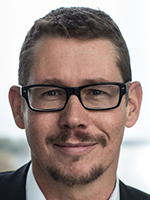
© nova-Institute
Michael Carus: How has the environment for the Renewable Carbon Economy evolved during the Corona pandemic, climate change and GreenDeal and the Ukraine war? (in terms of demand and investment)
Lars Börger: Understandably, events like the pandemic or the terrible war in the Ukraine lead to affected businesses entering crisis mode. In crisis mode, focus shifts to ensuring survival and preservation, which may hinder risk-taking and going new ways. Nevertheless, the demand for more sustainable solutions remained strong over the last two years. The reason is simple: Sustainability isn’t a fig leaf or nice-to-have anymore. Sustainability has become a competitive advantage, it’s a crucial part of more and more strategies and business models. In a way, becoming sustainable has also become a question of survival and preservation. If your business isn’t sustainable in the future, it’s probably not a business anymore.
Michael Carus: Are there market preferences for any of the three sources of renewable carbon? Biomass first and second generation, biogenic waste, utilisation of CO2 from biogenic and fossil sources and direct air capture or mechanical and chemical recycling?
Lars Börger: We basically see interest in all sorts of solutions, especially from bio-based raw materials as well as in the advancement of chemical recycling. With bio-based solutions being already available at scale, we are seeing more and more companies committed to sustainability introduce those solutions into their processes. It’s a big advantage that we can offer drop-in solutions here that can be used just as their fossil counterparts without changes in the infrastructure. When it comes to chemical recycling, there is interest in the ramp-up of the technology to use recycled materials also in high-quality and demanding applications. That’s why we are continuously moving forward towards commercialization of chemical recycling, and towards further expanding our feedstock base into new solutions as well.

Michael Carus: What would be the most important measures and policy instruments to accelerate the transformation from fossil to renewable carbon?
Lars Börger: First, we need to be technology neutral. Regulation should push all available renewable and circular solutions to maximise the impact of the industry to mitigate climate change. Second, we need to support investments in new and sustainable production technologies and innovation. Finally, we should provide incentives for using sustainable materials that prevent the usage of additional fossil carbon. Mandates can lead to a level playing field while creating demand and quickly ramp up the market and capacities.
Michael Carus: Thank you so much for the interview.
Meet Lars Börger at the Renewable Materials Conference 10 – 12 May 2022, Cologne, Germany (hybrid event) and look forward to his presentation „Renewable Carbon in Practice – Large Scale Transformation in the Chemical Industry“ on the 1st day!
More information: https://renewable-materials.eu
Source
nova-Institute, press release, 2022-05-09.
Supplier
Neste Corporation
nova-Institut GmbH
Share
Renewable Carbon News – Daily Newsletter
Subscribe to our daily email newsletter – the world's leading newsletter on renewable materials and chemicals









